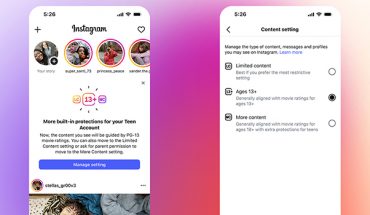A tech-enabled Canadian mobile advertising platform is realizing strong growth in a difficult market by remaining focused on children’s safety, even as it is used to deliver millions of video views, rich media ads and paid impressions to kids worldwide.
Its success comes as other technology companies, social media networks and government regulators struggle with controversies and concerns affecting kids’ online safety, access to suitable media content and relevant advertising, and the appropriate age attained and necessary information provided for giving consent in today’s digital environment.
Kidoz, a mobile adtech software developer and operator of an international mobile advertising network for kids and safe kids’ content, reported strong quarter-over-quarter growth, citing the more than 870 million paid impressions delivered in Q4 2022, a 73 uptick. More than half a billion video views were delivered, representing a 122 per cent increase!
Good news for Kidoz, and also for major ad partners like Lego, Disney, Mattel and others that target young consumers through mobile entertainment.
Yes, the fact that mobile entertainment is a dominant platform for consumers and advertisers today contributes to Kidoz’ success, as does its proprietary advertising technology.

Kidoz CEO Jason Williams says the company is central to the conversation about kids’ safety online.
But concerns about kids’ safety online and age of consent rules designed to protect children while they’re interacting with media and technology are also key to its success, and Kidoz itself is central to the entire conversation, says company CEO Jason Williams.
Advertisers are looking for brand-safe media with the widest reach, he says, and “Kidoz is their solution. We guarantee the safety of customer data; that’s our primary goal and mission. We have built a digital ad monetization system that is 100 per cent data free – we do not store, save, share, or have anything to do with user data.
“Kidoz has its own apps, yes, but we’re actually now B to B company. We’re a company that fits within other apps, allowing them to generate revenue through the display of advertising always in safe and compliant way.”
Compliant to an ever-changing legal and jurisdictional landscape, he points out. Whereas once the assumed age of consent for access to online platforms and content was 13 years, it is now being raised in many jurisdictions as a result of those concerns for children’s safety online, and growing calls to protect the personal information and identifying data kids often must give up in order to access the content or community they want.
“The pendulum is swinging,” Williams says, pointing to new privacy laws like those in the U.S.
The important California Age-Appropriate Design Code Act raises the age of consent to 18, meaning that new permission schemes must be developed and existing data usage patterns in ad placement campaigns must be revised.

The age of majority is being raised in many jurisdictions as a result of concerns for children’s safety online. Screen shots of ad examples from Kidoz.
The Children and Teens’ Online Privacy Protection Act (COPPA 2.0) and Kids Online Safety Act (KOSA) are also impacting the regulatory framework of digital advertising in the U.S., with Canada and other countries watching carefully and preparing to follow suit.
Such developments lean in Kidoz’s favour.
More and more advertisers and app publishers are adopting compliant monetization strategies, whether because they have to legally or they need to in order to respond to a changing market in which consumers themselves are more privacy-minded. Pressure on specific companies and their data collection habits continues to mount as awareness of the importance of data protection increases.
That’s another swing of the pendulum, as Williams sees it. “The regulators and society as a whole are catching up and making significant gains in understanding the importance of data, privacy and protection. They have more knowledge of what is happening with and to their data, and they are expressing their right to know and their right to control what is collected and how it is used.”
This changing landscape means more opportunities for Kidoz, so the continued advancement of its technology

Advertisers and app publishers are responding to a changing market in which consumers are more privacy-minded. Screen shots of ad examples from Kidoz.
is critical to its ability to convert those opportunities into revenue.
Much as other ad systems do, Kidoz has inventory slots or spaces to fill, which are taken to ad partners, positioned as ways to connect brand partners with children, and sold on an impression basis.
But instead of data targeting, Kidoz uses smart contextual targeting that’s based on the content and the context of what is being watched or what site is being visited.
Speaking from his office in Vancouver, Williams described how Canadian technology capabilities and an international workforce were brought to bear on software originally developed in Israel to launch and build the company’s proprietary offerings. Under the Kidoz hood is a smart content engine that can be configured to individualize content based on a wide variety of criteria: age, language, culture, nationality, gender, religion, and content popularity, among many others

Under the hood is a smart content engine that individualizes content based on age, language, culture, nationality, gender, religion, and content popularity, among other criteria.
“We rank apps – some 5,000 of them – and assess them based on factors like age, gender, game play. We do survey assessments of the apps and the age ranges using them. It’s a compliant way, a safe way, to get relevant advertising to the right place. It’s a system that’s not dependant on data collection, profiling or sharing.”
The belief that protecting the digital privacy of minors is critical, and that companies themselves must be accountable in a legal framework for protecting children’s data, drives the company and its CEO.
“Children do not have the power – nor should they – to consent to the collecting, profiling, sharing and monetizing of their data.”
His company is succeeding by offering a safe, workable and profitable alternative.
-30-



